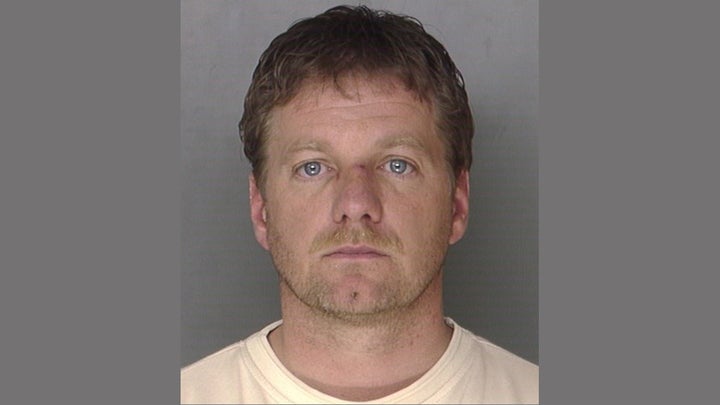Judging the place of hearsay testimony during Pa. preliminary hearings
Listen
The Pennsylvania Supreme Court will hear an appeal in the case of David Ricker
It was a “risky” move, Magistrate Judge Elizabeth McHugh told Montgomery County prosecutors who decided Bill Cosby’s accuser wouldn’t take the stand last week during the comedian’s preliminary hearing on sex assault charges.
Instead, two former police detectives and a police chief testified, reading statements given to authorities by accuser Andrea Constand.
Court watchers call the testimony of a second- or third-hand witness “hearsay.” Use of such testimony is controversial and currently under review by the Pennsylvania Supreme Court — potentially setting the stage for major changes in the way pretrial hearings unfold across the state.
In 2011, the rules governing state criminal proceedings began allowing hearsay testimony during a preliminary hearing when prosecutors have to show probable cause — that a crime occurred and that it’s likely the defendant committed it. That’s a far easier bar to clear compared with convincing a jury the defendant is guilty beyond a reasonable doubt, which is required during the trial.
The state’s Supreme Court itself wrote the 2011 rule allowing hearsay testimony during a preliminary hearings, but the fact that the court recently accepted an appeal indicates that six-justice panel is willing to revisit the debate.
Victim advocates and prosecutors say it’s important to keep an accuser out of this stage of the process, avoiding the trouble of having to describe potentially traumatic events before the trial. But defense attorneys counter that the accused has the right to confront and cross-examine the accuser.
A case in point
That’s where David Ricker steps in. The 51-year-old Harrisburg area man was charged with attempted murder and assault of a law enforcement officer after he and a state trooper exchanged fire two years ago in front of the gated driveway at Ricker’s home.
During Ricker’s preliminary hearing, the trooper who was struck by Ricker’s bullets did not take the stand. Instead, an investigator described the incident.
Bill Costopoulos, Ricker’s attorney, pushed back, saying he should be able to question the trooper. But the court overruled him, pointing out that he would have plenty of time to examine the trooper during the trial. In essence, the judge told Costopoulos to hold his breath for a little while.
“You’re asking me to hold my breath for much too long. I’ve gotta hold my breath for maybe six months or a year,” Costopoulos said in an interview recently. “That’s an awfully long time to wait.”
Costopoulos appealed the case to the Superior Court, which affirmed the trial judge’s decision. He then asked the Pennsylvania Supreme Court to hear the case. The state’s highest court denies about 97 percent of petitions, but it agreed to hear the Ricker case.
University of Pennsylvania law professor Stephanos Bibas said the case will almost certainly have no impact on the Cosby trial, as that would require the court to not only upend its current rule but also apply it retroactively.
Trial run
Still, even a modification to the rule could send a ripple effect through the state’s court system.
For defense attorneys, a preliminary hearing is a chance to find weaknesses in the case against their client before being bound over for trial.
“The defense wants this as a preview, so it knows where to investigate, and how to dig up dirt on the witnesses. Otherwise, the defense might not find out the witness list until the eve of trial,” Bibas said.
“The defense can go on fishing expeditions,” he said, adding that allowing hearsay evidence limits the potential avenues defense attorneys can explore.
At the same time, prosecutors often have valid reasons for keeping victims out of preliminary hearings, Bibas said.
“You have witnesses who are legitimately afraid for their safety. You have rape victims. People who live in the neighborhood. People who have been subjected to threats of violence. Gang violence cases,” he said.
Bibas said it’s exceedingly rare for a judge to toss out charges during a preliminary hearing, despite defense attorneys’ best efforts.
“The default of the judge is going to be, ‘If I knock this out, there’s at least a potential of being appealed, let me leave this to trial, the standard of proof is higher at trial anyway.'”
‘Mail us the statements’
As the high court prepares to hear oral arguments on the case sometime this fall, attorney Frank Cervone, who works with sexually abused children, is hoping that the court underscores its current procedure rather than overturning it.
It’s important, he said, for victims to recall events in a safe setting they can trust. Subjecting them to cross-examination at a preliminary hearing would be a bad policy, Cervone argued.
“Cross-examination is a kind of shake-down,” he said. “Ostensibly, the goal of cross-examination is to get to the truth, but we know as well that cross-examinations have the goal of created confusion.”
Yet Costopoulos believes that, absent real questioning, a preliminary hearing is a one-sided process.
“If a preliminary hearing can be conducted based on hearsay alone, then I don’t know why you need effective counsel at the preliminary hearing,” he said. “Just mail us the statements and save us the trip.”
WHYY is your source for fact-based, in-depth journalism and information. As a nonprofit organization, we rely on financial support from readers like you. Please give today.

